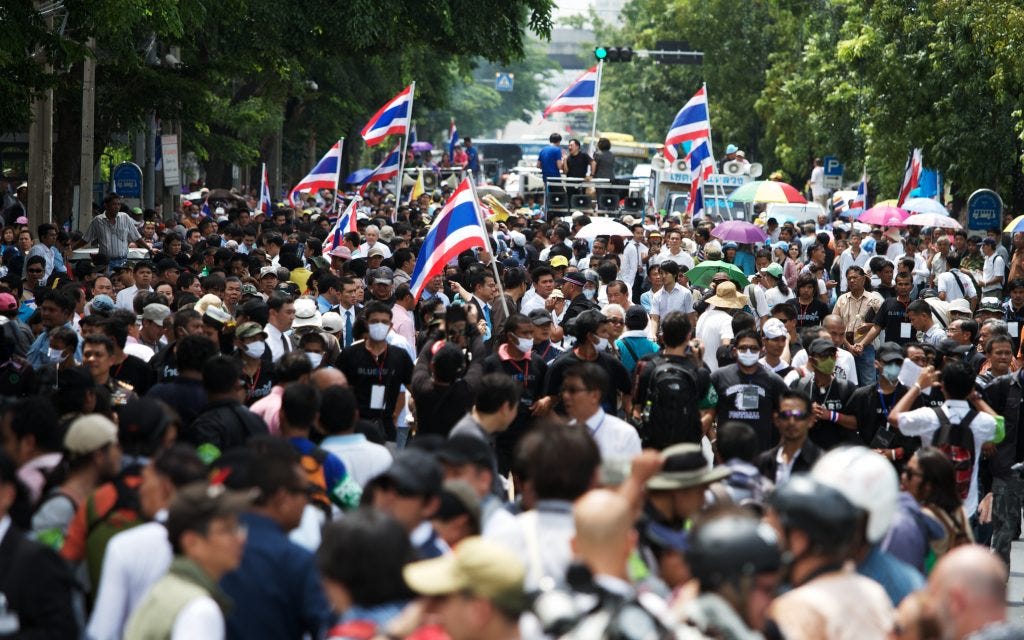Thailand’s Opposition Democrats Go Rogue
Thwarted at the ballot box, the Democrats set out to use the violent tactics of the Yellow Shirts
Thailand’s opposition Democrat Party, having tasted success in stopping a blanket amnesty that would have allowed fugitive former Prime Minister Thaksin Shinawatra to return from exile, is turning to the violent tactics of the Yellow Shirt movement that brought the country to a standstill in 2007 and 2008.
A Thai banker told Asia Sentinel…
Keep reading with a 7-day free trial
Subscribe to Asia Sentinel to keep reading this post and get 7 days of free access to the full post archives.

